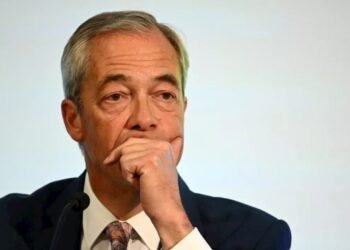In a candid interview, Steve Bannon sat down with vaccine expert John Leake to dismantle the prevailing narratives around vaccines, especially the COVID-19 jab, and call out government health officials—most notably Anthony Fauci—for what they describe as a massive public health fraud. With Donald Trump still in office, this discussion adds fuel to ongoing debates about pandemic management and vaccine mandates.
QUICK CLIP:
LEAKE: "There’s This Enduring Myth That This Reduction Of Mortality Is Attributed To Vaccines.” pic.twitter.com/gMuVpqJ3wt
— Bannon’s WarRoom (@Bannons_WarRoom) July 28, 2025
Leake, co-author of a revealing new book on vaccine history and policy, challenges the long-held assumption that vaccines were the primary drivers behind the dramatic drop in infectious disease deaths. Citing U.S. vital statistics, Leake points out that before the widespread adoption of vaccines in 1948—like the diphtheria, tetanus, and pertussis shots—mortality rates from infectious diseases had already plummeted by more than 90%. He credits improved sanitation, nutrition, housing, pasteurization, and general living standards for this remarkable public health success, arguing that vaccines have been given outsized credit.
LINK TO BOOK: Vaccines: Mythology, Ideology, and Reality Hardcover – July 29, 2025 by
The WarRoom discussion turns sharply critical when addressing the COVID-19 vaccine. Leake calls the entire rollout a "fraud,” citing a 2022 paper co-authored by none other than Dr. Fauci himself. According to this paper, the type of immune response induced by the vaccine—blood antibodies produced in the deltoid muscle—was never designed to stop coronavirus replication or transmission in the nasal passages, where the virus first takes hold. Despite this scientific limitation, the vaccines were widely mandated, raising serious questions about the motives behind these policies.
Leake and Bannon don’t mince words regarding Fauci, accusing him of lying to Congress about gain-of-function research and misrepresenting vaccine safety and efficacy. They argue Fauci’s endorsement of the COVID vaccine—despite its documented limitations and adverse effects—amounts to a grand-scale fraud. They call for accountability, suggesting Fauci should face legal consequences for perjury and potentially more serious charges related to misleading the American public.
This no-holds-barred critique extends beyond COVID-19. The book traces a long history of vaccine-related fraud and misrepresentation going back to the 18th century, exposing flawed science and ethical lapses by medical luminaries like Louis Pasteur. It also tackles the contentious autism debate, noting the surge in vaccine schedules following the 1986 Childhood Vaccine Injury Act—which granted manufacturers blanket liability protection—and the simultaneous rise in autism diagnoses. While maintaining that vaccines are not definitively proven to cause autism, Leake emphasizes the importance of dispassionate, scientific inquiry rather than dismissive censorship of critics like Robert F. Kennedy Jr.
Bannon highlighted how this discussion fits into a broader fight against what they see as deep-state medical tyranny. Leake praised President Trump’s early skepticism of the pandemic narrative and his calls for transparency regarding COVID’s lab origins—a claim now increasingly supported by investigative reports.
Leake and Bannon urge Americans to read the book for a comprehensive, well-documented history and critique of vaccine science and policy. They aim to reopen the conversation about vaccine safety and effectiveness, free from political censorship and the stigmatization of dissenting voices.
In closing, Leake expressed hope that their work will empower the public to demand honest science and hold influential figures accountable. As the debate over vaccine mandates and public health policy continues to rage, this conversation offers a provocative and controversial perspective—one that questions the official narrative and calls for a reckoning with uncomfortable truths.
Bannon and Leake’s discussion underscores the need for critical examination of the COVID era’s defining medical intervention and its architects—starting with Anthony Fauci and extending to the institutions that enabled this unprecedented global campaign. The American public, in their view, deserves nothing less.
For a fuller context, watch this full interview featuring Dr. Leake:





